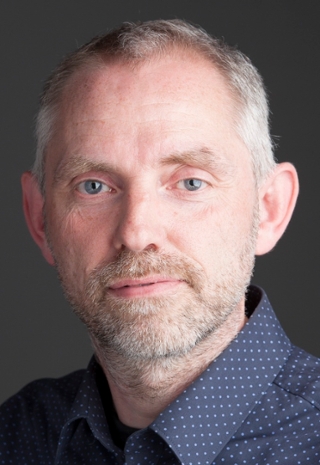Applied research at Universities of Applied Sciences in the Netherlands is a relatively new activity, but is already having a great effect on society. This impact is not always immediately apparent, however. Which is why AUAS is establishing a new research group aimed at increasing this impact and making the benefits of applied research more visible and recognisable. Harry van Vliet will head this new research group as AUAS-wide professor of ‘Impact of Practice-based Research’. His appointment takes effect as from 1 January 2021.

Applied research has taken off dramatically within a short period. Now the time is ripe for the next step: to demonstrate the impact higher professional education research is having. To what extent are its results really felt in society? What is going well, and where is there room for improvement? This, in summary, is why AUAS is setting up the research group Impact of Practice-based Research.
New phase
“Universities of applied sciences have only been carrying out research for some 20 years; this is a very short tradition in research”, professor Harry van Vliet explains. “Developments have moved rapidly. Ten years ago, most people didn’t know what a ‘lector’* was; now there are almost 700 professors in the Netherlands at universities of applied sciences, and they really make a difference in tackling a wide range of challenges in the cities and regions in which they operate”.
Now that the foundation has been built, a new phase is beginning. There’s a lot happening, but good results are still not always being taken up. Van Vliet: “Why is it that research results sometimes lead to big, successful changes – for example, because local authorities adjust their policies – but some research results remain unused? If we can gain greater insight into this success and failure, we will be able to make better use of the unique nature of higher professional education research."
The government also wants results
The ambition to show how applied research makes an impact and leads to concrete change is coming not only from the AUAS itself. The government is also emphasising the importance of this. For example, in its Agenda for Knowledge and Innovation (in Dutch), the Dutch cabinet has stressed that research should preferably make a contribution to the big societal challenges of the moment, such as sustainability.
Universities of Applied Sciences are at the heart of society, and this offers perspectives. Van Vliet: “Higher professional education is close to everyday practice – universities of applied sciences really play a regional or city-wide role. Practice-based research therefore has a feel for what’s happening on the ground, as well as for what could work.”
Right man in the right place
As far as AUAS Rector Geleyn Meijer is concerned, the new research group has arrived at exactly the right moment: “Applied research is ideally positioned to contribute solutions to the big challenges of our times. AUAS is initiating this research group to make this contribution even more effective and visible; Harry van Vliet is the right man for this, in the right place.”
It’s not only academic publication that counts
But the research group also has another mission: to raise the profile of applied research as a catalyst for breakthroughs and changes in society (to make this impact more visible). An academic publication is the ‘classic’ yardstick for the impact of a piece of research.
However, according to Van Vliet, there are many more ways in which breakthroughs can be brought about. “Professors and higher professional education researchers make tools, give training courses and hold co-creation sessions with businesses, citizens and policymakers. Perhaps researchers think that this isn’t part of making impact. But all of this really does count, as it ensures that things actually change. Take professor Reint Jan Renes, for example: by participating in the Corona Behavioural Unit, he had an actual influence on policy.”
Structural overview
Van Vliet aims to develop a structural overview of the different ways in which applied research achieves impact or ‘carry-over effects’. He also wishes to put forward improvements to allow the potential of applied research to be put to even better use.
The professor now gives workshops to researchers, which is leading to raised awareness. “It should really become second nature to them to already start thinking about potential carry-over effects of their research. So if we do this right, in a few years’ time we will be able to retire this research group, as this goal will have been achieved. Making ourselves redundant will be proof of our success”, Van Vliet jokes.
This article was first published by AUAS.




 A unique international forum for public research organisations and companies to connect their external engagement with strategic interests around their R&D system.
A unique international forum for public research organisations and companies to connect their external engagement with strategic interests around their R&D system.